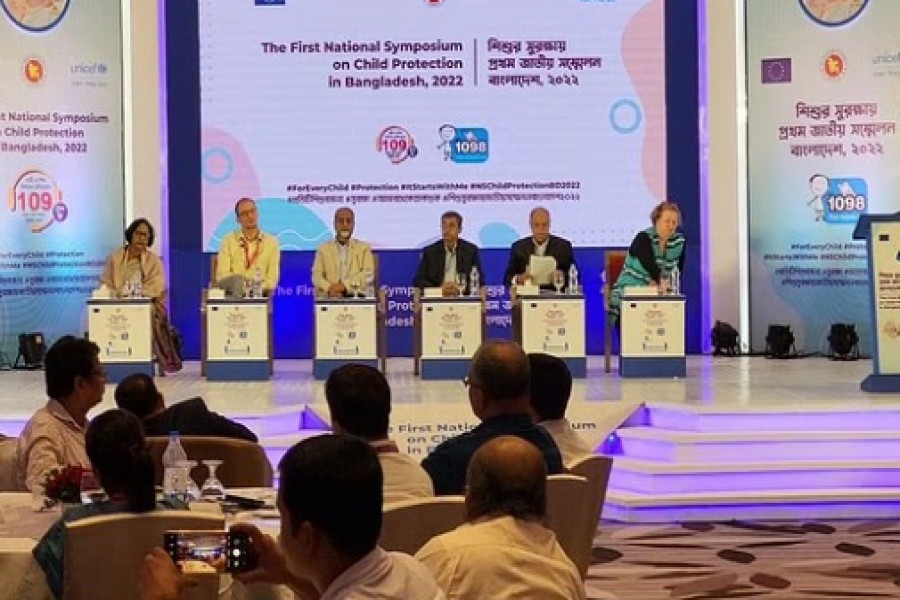Bangladesh will recruit 6,000 new social workers, increasing the size of the workforce from 3,000 to 9,000, in an effort to expand child protection services in the country.
The ground-breaking commitment to children comes after a comprehensive national household survey revealed that 45 million Bangladeshi children under the age of 15 - a shocking 89 per cent - are regularly subjected to physical and psychological violence at home, reports bdnews24.com.
The announcement to strengthen child protection services and increase the number of social workers by 200 per cent was made at the first-ever ‘National Symposium on Child Protection in Bangladesh’, held in Dhaka on Monday.
The symposium, which was jointly organised by UNICEF and the European Union, was virtually opened by Prime Minister Sheikh Hasina, who emphasised the importance of making child protection services available at the community level in a video message.
"The aim of our government is to build a professional social services workforce that enhances efficient delivery of child protection services such as Child Helpline 1098, Child Protection Allowances, and community-based outreach services involving volunteers, adolescent children, and community people so that no child is left behind," said Hasina.
However, according to data from a study named Bangladesh Multiple Indicator Cluster Survey (MICS) conducted in 2019 by the Bangladesh Bureau of Statistics (BBS) in partnership with UNICEF Bangladesh, more than three million children are trapped in child labour in Bangladesh. Of them, 1.3 million are engaged in hazardous forms of child labour.
“About half of the population of Bangladesh are under the age of 18 who are considered as children and more than 20 million of them are under the age of five. To build children as worthy citizens, we have to fulfil their basic rights like education, nutrition, medicare, protection, participation, recreation, safe water, sanitation and hygiene,” the prime minister noted.
She added that poverty is one of the major barriers in fulfilling the needs of children and the government has developed the National Social Security Strategy (NSSS) to build an inclusive social security system for all deserving citizens.
“Under social safety net programmes, our government has been disbursing various allowance among 10.7 million people of the country. Children are also beneficiaries of these programmes.”
On education, Hasina said Bangladesh has made 'remarkable progress' in primary school enrolment.
“About 98 percent of school going children are enrolled. Primary school students are supported by stipend, about 23 million students have been brought under various stipend and scholarship programs.”
Here, the MICS-2019 data also says that one in five children do not complete primary school. Nearly half of children do not have a birth registration. Over 100,000 children are in institutional care and lack family support. One in every two girls is made to marry while still a child. Untold millions of children live on the streets.
"Social workers reach deep into communities where children need them the most. I congratulate the government of Bangladesh for this dramatic increase in the number of social workers to help more children to benefit from critical professional care," said Sheldon Yett, UNICEF representative to Bangladesh.
Ambassador Charles Whiteley, the head of the EU delegation to Bangladesh, said: "Children hold a significant potential to accelerate Bangladesh's development. Our event today is a unique opportunity towards ensuring children are protected from violence, abuse and exploitation, in particular the most vulnerable children and children with disabilities. The EU remains committed to supporting the government to strengthen child protection systems in Bangladesh.”
Saima Wazed, the chairperson of Shuchona Foundation and advisor to the WHO director-general on mental health and autism, gave the keynote presentation at the event.
“Every child has potential, every child can contribute to society. We just have to create that environment for them,” she said.


